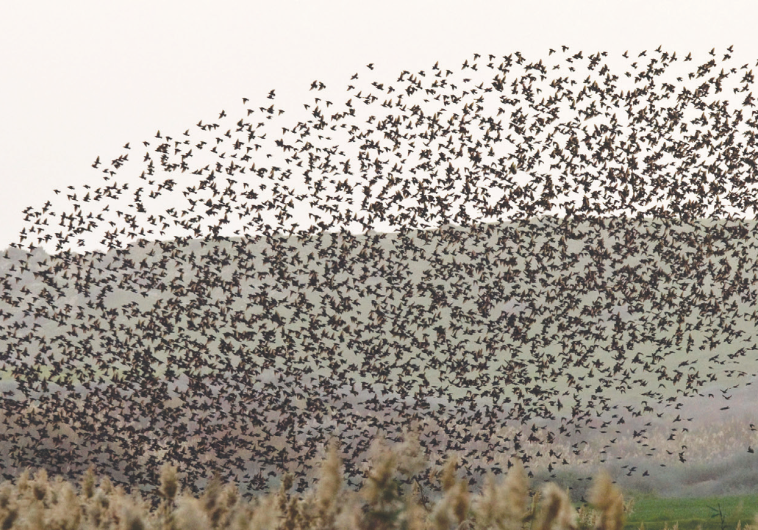Experts at TA confab say improving habitats for migrating birds is crucial to their survival
Germany’s Franz Bairlein: There’s been a dramatic decrease in fowl heading to the trans-Saharan region.
 STARLINGS FLY in formation near Rahat in the Negev last winter.(photo credit: NIR ELIAS / REUTERS)
STARLINGS FLY in formation near Rahat in the Negev last winter.(photo credit: NIR ELIAS / REUTERS)